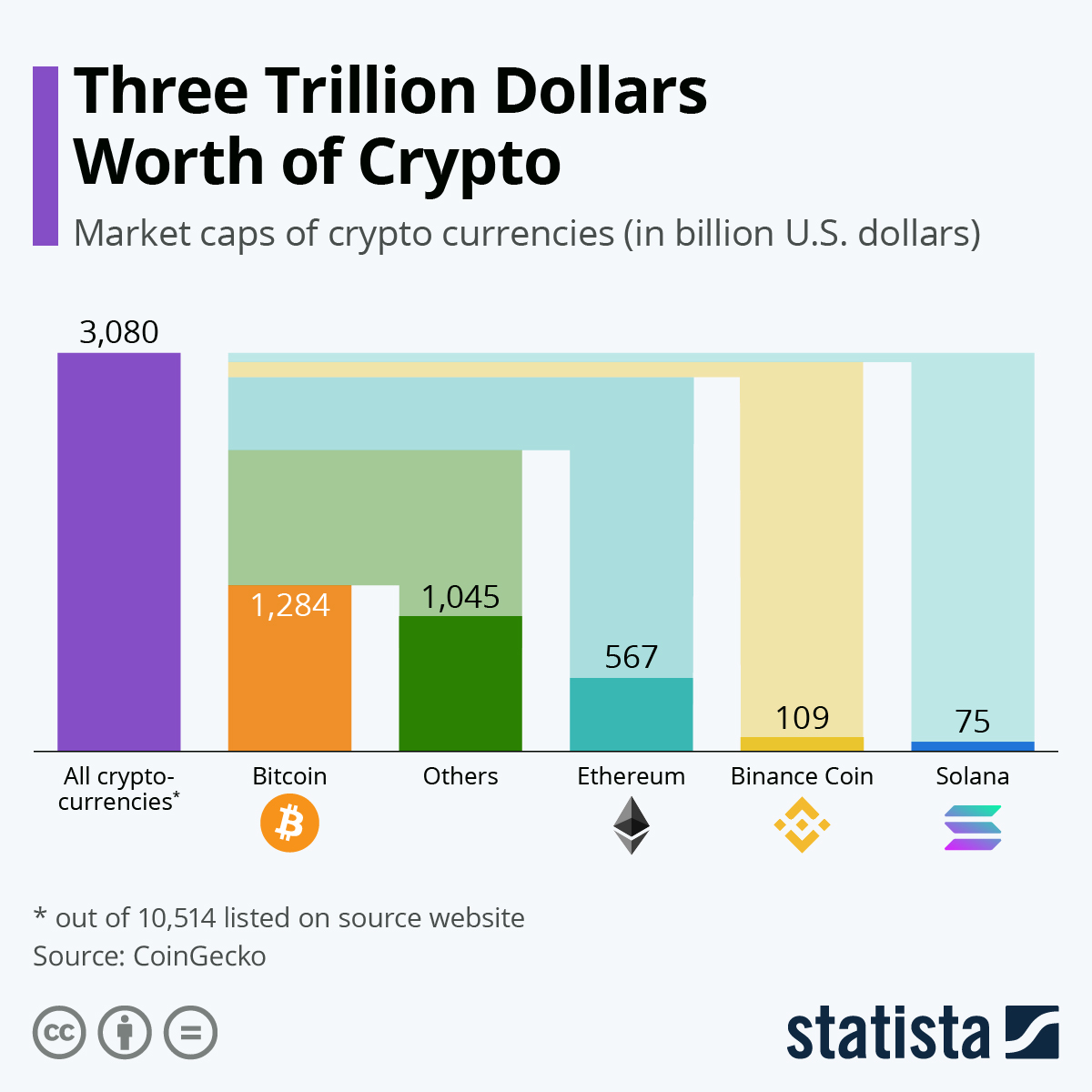value of all cryptocurrencies
Value of all cryptocurrencies
The total crypto market volume over the last 24 hours is $172.65B, which makes a 34.94% increase. The total volume in DeFi is currently $27.22B, 15.77% of the total crypto market 24-hour volume https://realitypms.com/fs/100freespins/. The volume of all stable coins is now $161.34B, which is 93.45% of the total crypto market 24-hour volume.
CoinMarketCap does not offer financial or investment advice about which cryptocurrency, token or asset does or does not make a good investment, nor do we offer advice about the timing of purchases or sales. We are strictly a data company. Please remember that the prices, yields and values of financial assets change. This means that any capital you may invest is at risk. We recommend seeking the advice of a professional investment advisor for guidance related to your personal circumstances.
A token is a digital asset created on an existing blockchain platform. They represent various types of assets or utilities. Tokens are not native to the blockchain they’re built on and can include utility tokens, security tokens, or non-fungible tokens (NFTs). Examples of tokens are Uniswap (UNI), Binance Coin (BNB) and Chainlink (LINK).
What is the market cap of all cryptocurrencies
The total crypto market volume over the last 24 hours is $172.65B, which makes a 34.94% increase. The total volume in DeFi is currently $27.22B, 15.77% of the total crypto market 24-hour volume. The volume of all stable coins is now $161.34B, which is 93.45% of the total crypto market 24-hour volume.
An altcoin is any cryptocurrency that is not Bitcoin. The word "altcoin" is short for "alternative coin", and is commonly used by cryptocurrency investors and traders to refer to all coins other than Bitcoin. Thousands of altcoins have been created so far following Bitcoin’s launch in 2009.
Even though market cap is a widely used metric, it can sometimes be misleading. A good rule of thumb is that the usefulness of any given cryptocurrency’s market cap metric increases in proportion with the cryptocurrency’s trading volume. If a cryptocurrency is actively traded and has deep liquidity across many different exchanges, it becomes much harder for single actors to manipulate prices and create an unrealistic market cap for the cryptocurrency.
The very first cryptocurrency was Bitcoin. Since it is open source, it is possible for other people to use the majority of the code, make a few changes and then launch their own separate currency. Many people have done exactly this. Some of these coins are very similar to Bitcoin, with just one or two amended features (such as Litecoin), while others are very different, with varying models of security, issuance and governance. However, they all share the same moniker — every coin issued after Bitcoin is considered to be an altcoin.
A cryptocurrency’s market cap increases when its price per unit increases. Alternatively, an increase in circulating supply can also lead to an increase in market cap. However, an increase in supply also tends to lead to a lower price per unit, and the two cancel each other out to a large extent. In practice, an increase in price per unit is the main way in which a cryptocurrency’s market cap grows.

Do all cryptocurrencies use blockchain
Another blockchain innovation are self-executing contracts commonly called “smart contracts.” These digital contracts are enacted automatically once conditions are met. For instance, a payment for a good might be released instantly once the buyer and seller have met all specified parameters for a deal.
Blockchain is the technology that enables the existence of cryptocurrency (among other things). Bitcoin is the name of the best-known cryptocurrency, the one for which blockchain technology, as we currently know it, was created.
Ethereum, for instance, is home to the largest pool of emerging crypto technologies – right from the metaverse to DeFi, dApps, Web3, meme currencies, and even NFTs. All these, plus the upcoming Ethereum 2.0 upgrade are all expected to catapult ETH token prices to unprecedented heights.
Q #1) What are the four types of cryptocurrency? Answer: The four major types include utility, payment, security, and stablecoins. There also are DeFi tokens, NFTs, and asset-backed tokens. Of all cryptocurrencies, the most common are utility and payment tokens.
